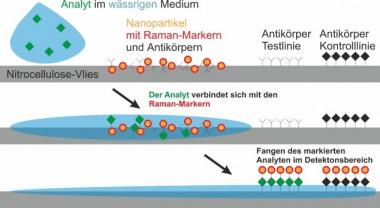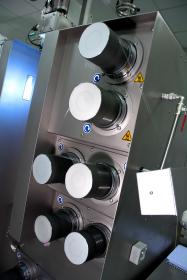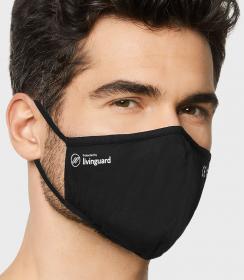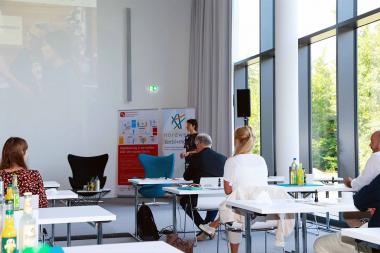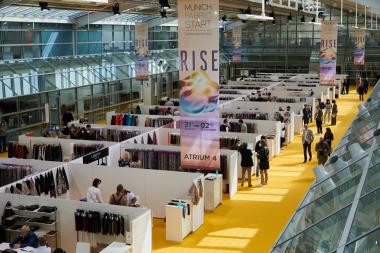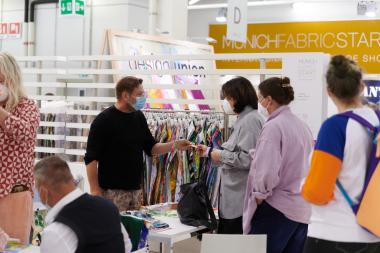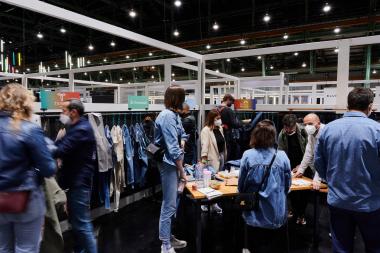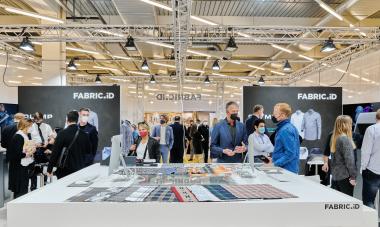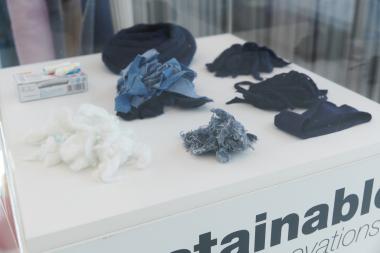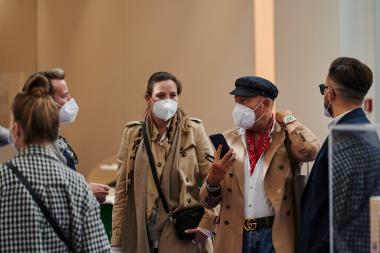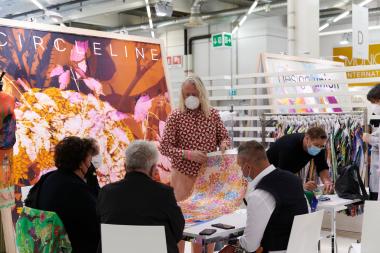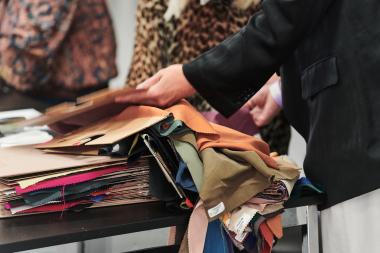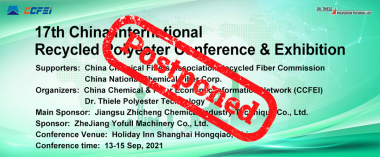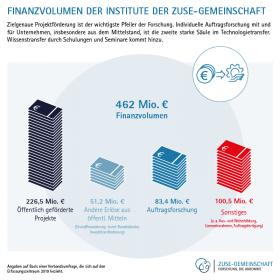Schnelltests: Vom Ja/Nein bei Corona zu differenziertem Gesundheitsstatus
Spätestens seit der Corona-Pandemie kennt man Antigen-Schnelltests. Ein Rachenabstrich oder eine Speichelprobe reichen aus, um schnell eine mögliche Infektion festzustellen. Doch wie lassen sich Schnelltests für noch anspruchsvollere diagnostische Fragen in der Medizin nutzen? Im Zentrum der Forschung an Instituten der Zuse-Gemeinschaft stehen der Einsatz mehrerer Analyte und damit die gleichzeitige Beprobung auf verschiedene gesundheitliche Fragestellungen ebenso wie Möglichkeiten zum Nachweis sehr geringer Konzentrationen von Substanzen.
Am Göttinger Institut für Nanophotonik (IFNANO) setzt man dafür auf die Weiterentwicklung von Analyseverfahren, die mit Teststreifen funktionieren, wie man sie nicht nur von Corona-, sondern z.B. auch von Schwangerschafts-tests kennt. Das Grundprinzip dieser Teststreifen: Die Analyte werden in wäss-rigen Medien gelöst dann mit Markern gemischt und auf ein Trägermedium gegeben, auf dem sie bis zur Test- und Kontrolllinie wandern. Die Analyte, wie zum Beispiel das Corona-Virusmaterial, binden sich einerseits an den Marker, der aus einer Farbmarkierung wie z.B. Goldnanopartikeln und dem Antikörper besteht, und anderseits an den Antikörper an der Testlinie. Die Antikörper sind so aufgebaut, dass sie selektiv d. h. möglichst nur einen Analyten, wie das Corona-Virusprotein, binden. Durch das Anreichern der Marker auf den Linien verfärben sich diese und man kann den Test mit bloßem Auge auslesen.
Diagnostik u.a. von Autoimmun-, Stoffwechsel- und Infektionskrankheiten
Ähnlich wie beim IFNANO, so steht auch am Forschungszentrum für Medizintechnik und Biotechnologie in Bad Langensalza (fzmb) bei der Arbeit an Schnelltests im Fokus, mehrere Analyten aus einer einzigen Probe zu bestimmen. Dazu gehören die Diagnostik von Autoimmun-, Stoffwechsel- und Infektionskrankheiten, Allergie- und Nahrungsmittelunverträglichkeitstests sowie Krebsanalytik und Biomarkersuche. „Unsere Entwicklungsprodukte bieten hervorragende Perspektiven für neue Wege in der individualisierten Diagnostik und personalisierten Medizin“, erklärt fzmb-Geschäftsführer Dr. Peter Miethe. Die Auswertesysteme des fzmb ermöglichen nach seinen Angaben die automatisierte, kundenspezifische Analyse auf verschiedenen Trägerformaten wie Mikrotiterplatten, Objektträgern, Membranen und kundenspezifischen Biosen-soren. Als konkrete künftige Einsatzgebiete für die Schnelltests strebt das fzmb u.a. das Erkennen autoimmuner Schädigungen von Gehirnfunktionen beim Menschen an. Hierzu läuft aktuell ein Projekt mit drei Forschungspartnern bei dem Thüringer Institut. Dabei sollen erstmals mehrere Autoantikörper gleichzeitig bestimmt werden, um eine differenzierte Diagnose, individualisierte Therapieeinstellung und Verlaufskontrolle bei Patienten mit autoimmunen neuronalen Erkrankungen zu gewährleisten.
Lab on a Chip-Technologie entwickelt
Kernkompetenz sind Schnelltests mit Hilfe der Bioanalytik auch bei Hahn-Schickard. Neben klassischen Verfahren mit Teststreifen setzen die Forschenden in Freiburg auf die „Lab on a Chip“-Technologie. Die von ihnen entwickelte sogenannte LabDisk, das ist eine Kunststoff-Kartusche, die als Träger für das Testmaterial dient und in ein mobiles Auslesegerät eingeführt wird, hat sich nicht nur in medizinischen Anwendungen, sondern auch in der Umweltanalytik, z.B. in der Qualitätssicherung von Wasser- und Lebensmittelproben bewährt.
Fertigung wieder in Deutschland ansiedeln
Der Pharmabereich ist einer jener Sektoren, in denen Störungen von Produktions- und Logistikketten, bedingt durch Lieferprobleme aus Fernost, während und nach der Corona-Krise schmerzhaft spürbar wurde. „Die Arbeit von Instituten der Zuse-Gemeinschaft ist ein Baustein, um in einigen wichtigen Teilbereichen der Medizintechnik wieder mehr Souveränität zu erlangen“, erklärt der Geschäftsführer der Zuse-Gemeinschaft, Dr. Klaus Jansen.
Zuse-Gemeinschaft Konrad Zuse e.V. Corona Covid-19 Gesundheitswesen IFNANO-Schnelltest
Deutsche Industrieforschungsgemeinschaft Konrad Zuse e.V.


